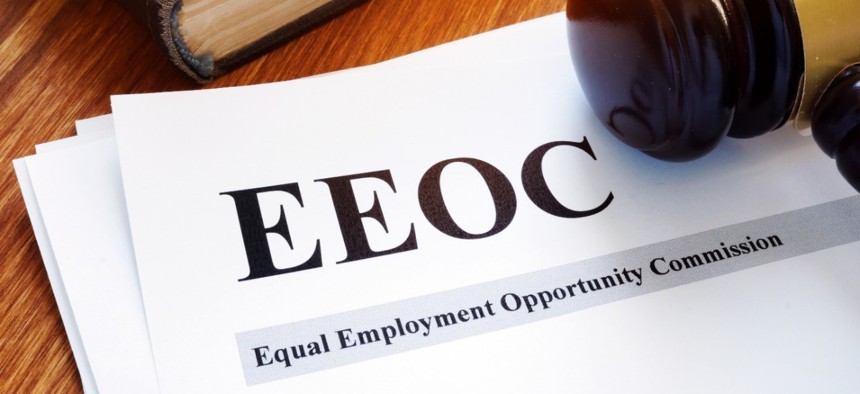
By Vitalii Vodolazskyi / Shutterstock.com
Civil Rights Groups Join Fight Against EEOC Official Time Proposal
A pair of nonprofit groups said plan to make the right to official time for union representatives subject to collective bargaining agreements lacks "adequate justification" and will harm federal workers.
Two anti-discrimination nonprofit organizations on Monday told the Equal Employment Opportunity Commission that they have “grave concerns” about the agency’s proposed rule that would strip the right to official time from union representatives enlisted to aid a federal employee with a discrimination complaint.
Last December, EEOC formally proposed regulations that would make the granting of official time for union officials to work on complaints before the commission subject to individual agencies’ collective bargaining agreements.
The agency argued that because the law authorizing official time for employees to work on their own or their colleagues' discrimination cases predated the 1978 Civil Service Reform Act, which established official time as a practice for union employees, “there was no reason for the original EEO procedures to address union official time.”
Federal employee unions have blasted the proposal, arguing that it will make it harder for employees to pursue discrimination complaints, citing the expertise that union officials can provide to the process.
On Monday, the Lawyers’ Committee for Civil Rights Under Law and the Leadership Conference on Civil and Human Rights jointly submitted comments to EEOC on the proposal, and argued the plan could severely curtail federal workers’ ability to challenge instances of discrimination in their workplace.
“The EEOC seeks to single out union representatives by forcing them to negotiate official time as a term of collective bargaining, a tactic that could result in severe limitations on, or complete elimination of, access to EEO official time,” the groups wrote. “Ensuring that federal employees have adequate representation to pursue EEO matters is essential to fostering a safe and productive federal workforce, and union officials are experienced in navigating complex federal complaint processes.”
The organizations argued that EEOC’s reliance on the fact that official time for union employees was not guaranteed in law until 1978 is misguided, because the agency affirmatively guaranteed official time to union employees to work on complaints after the Civil Service Reform Act took effect.
“According to EEOC, ‘failing to clarify the commission’s regulation can cause agencies and unions to be unclear on exactly which aspects of official time they need to bargain,’” they wrote. “Yet, the EEOC adopted the [Civil Service Commission’s] EEO official time rule in 1987, nine years after Congress passed [the Civil Service Reform Act]. The EEOC addressed the coverage of union officials in its rule in 1987, and again in 1992 during the commission’s revision of federal sector EEO procedures.”
The organizations said it is particularly important to preserve federal workers’ access to experts on EEOC’s processes, given how arduous they are when compared with the private sector.
“Federal employees also have shorter windows than private employees to file discrimination complaints and have to navigate confusing complaint procedures within their agencies,” the groups wrote. “Federal workers only have 45 days from the date of a discriminatory action to initiate an EEO complaint, compared to private sector employees who have 300 days or, in some states, 180 days to bring a discrimination charge.”
Last month, the chairs of two House committees demanded a number of documents from the agency related to the proposal, including both internal deliberations and correspondence with other federal agencies, including the Office of Personnel Management.







